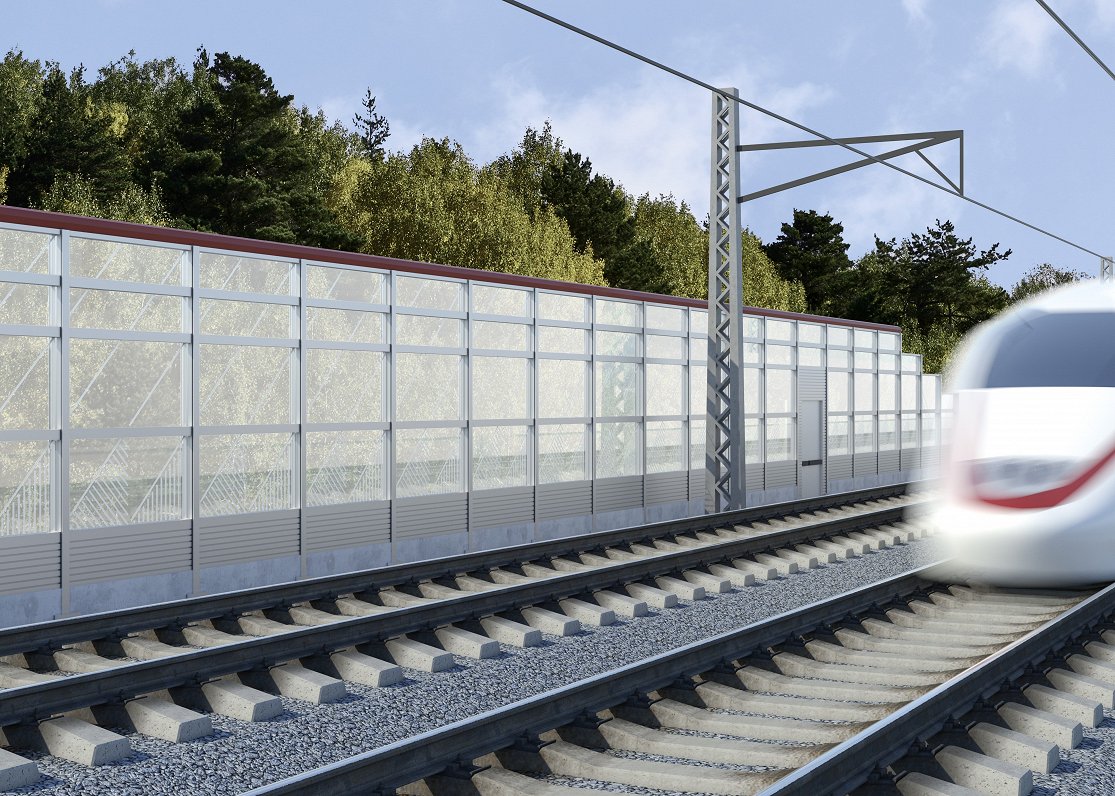The Supreme Audit Institutions (SAIs) of Estonia, Latvia and Lithuania concluded that roles, responsibilities and procedures for managing the Rail Baltica project were "mostly in place" but that "inefficiencies in the project management present a risk that the project will exceed the agreed budget and timeline."
The Rail Baltica project is the largest infrastructure project in the history of independent Baltic States. The 870-kilometre railway line from Tallinn to the Lithuanian-Polish State border is currently estimated to cost 5.79 billion euros, 85% co-financed by the European Union from the Connecting Europe Facility with the three Baltic States paying 5% each.
"So far, the project implementers have not managed to keep the activities agreed in the Connecting Europe Facility Grant Agreements within the timeline and initially estimated budget. The activities of the entire Rail Baltica project are a year and a half behind the schedule agreed in the funding agreements," the auditors say.
RB Rail AS estimated in June 2019 that the project could be delayed up to March 2030 from the projected end date of 2026 if risks and funding issues are not sorted out. Nevertheless, the budget estimated in the 2017 cost-benefit analysis and the official deadline of 2026, have not been changed.
The project budget, after two Grant Agreements have been signed, is estimated to be around 59 million euros over bidget already.
"A legal analysis showed that the project implementation structure does not conflict with the legislation of the Baltic States and found no inherent conflict of interest in the governance structure, according to law. However, the analysis also found that there is no effective mechanism for solving deadlock situations when the beneficiaries cannot agree on a common solution. The Baltic countries have had different visions for the project governance, such as deciding the best solution for financing RB Rail AS or the infrastructure management model, and these difficulties in reaching decisions have led to time waste," the auditors said.
Surprisingly, "though all three Baltic countries have included the Rail Baltica project in State budget planning, none have made long-term plans for financing until the end of the project. Neither have the countries formally approved plans to guarantee self-financing for the project in case the cost of project implementation will be higher than estimated and/or European Union co-financing is lower than estimated," the auditors add.
On a more positive note, the audit showed that RB Rail AS has developed procedures for conducting procurements and contracts and that the rules have become more comprehensive. RB Rail AS has also established a quality control system and is in the process of developing a risk management system.
"Main recommendations are to agree on the clear decision-making rules for the Rail Baltica project throughout all implementation levels and clear change and risk management plans to mitigate the risk of going over the project timeline and budget. It is also recommended to estimate the long-term availability of national funding for the project, including the case if the project costs rise or European Union funding is lower than planned. The auditees generally agreed with the recommendations made during the audit. Nevertheless, the answers to the audit showed that the respective ministries are somewhat reluctant to plan the project finances officially up till the end of the project," the auditors conclude.
The Company responds
RB Rail, the joint venture with the task of actually building Rail Baltica, responded saying it had carefully reviewed the findings of the joint audit.
“We fully trust and respect the findings of the joint audit, which were delivered by independent audit institutions from Estonia, Latvia and Lithuania,” said Agnis Driksna, interim CEO and Chairman of the Management Board of RB Rail AS.
“We are committed to take action and have already started to implement necessary measures to achieve tangible change in the areas highlighted in the audit. While the audit highlights both scheduling and budget risks, the implementation of Rail Baltica by 2026 remains our target. We have identified the key preconditions necessary to meet this target, including improved decision making during the design and construction phases and timely availability of funding. If these preconditions are met effectively, Rail Baltica can be delivered on time,” insisted Driksna.
In response to the cost increase of Rail Baltica, Ignas Degutis, RB Rail AS Chief Financial Officer said: “As Rail Baltica Global Project is progressing into the design phase, more technical information becomes available to planners and new needs of the project stakeholders emerge. The Rail Baltica costs for all countries will be updated after the conclusion of the detailed technical design in 2021 and further studies on estimated passenger and cargo flows. At the same time, it must be acknowledged there are also plenty of options to consolidate the costs of the projects through joint procurement and smart engineering solutions.”
RB Rail AS said that "by March 2020" it will develop a new internal procedure regarding the selection of procurement committee members and external experts as well as a new regulation on how to conduct preliminary market research.
It also flagged up its achievements so far, which it said included the facts that design works have started on 411 km of the main line, six detailed technical design contracts for the main line signed with experienced international engineering companies amounting to 58 million euros have been signed and that key passenger terminals in Tallinn and Pärnu are being designed and design and build works started at Rīga Central Station. In 2019 RB Rail AS concluded 66 procurement contracts with the total value of 64.2 million euros. 800 million euros in European funding have been secured so far with the next applications due to be submitted in February.
More information about Rail Baltica is available at the official website.



























